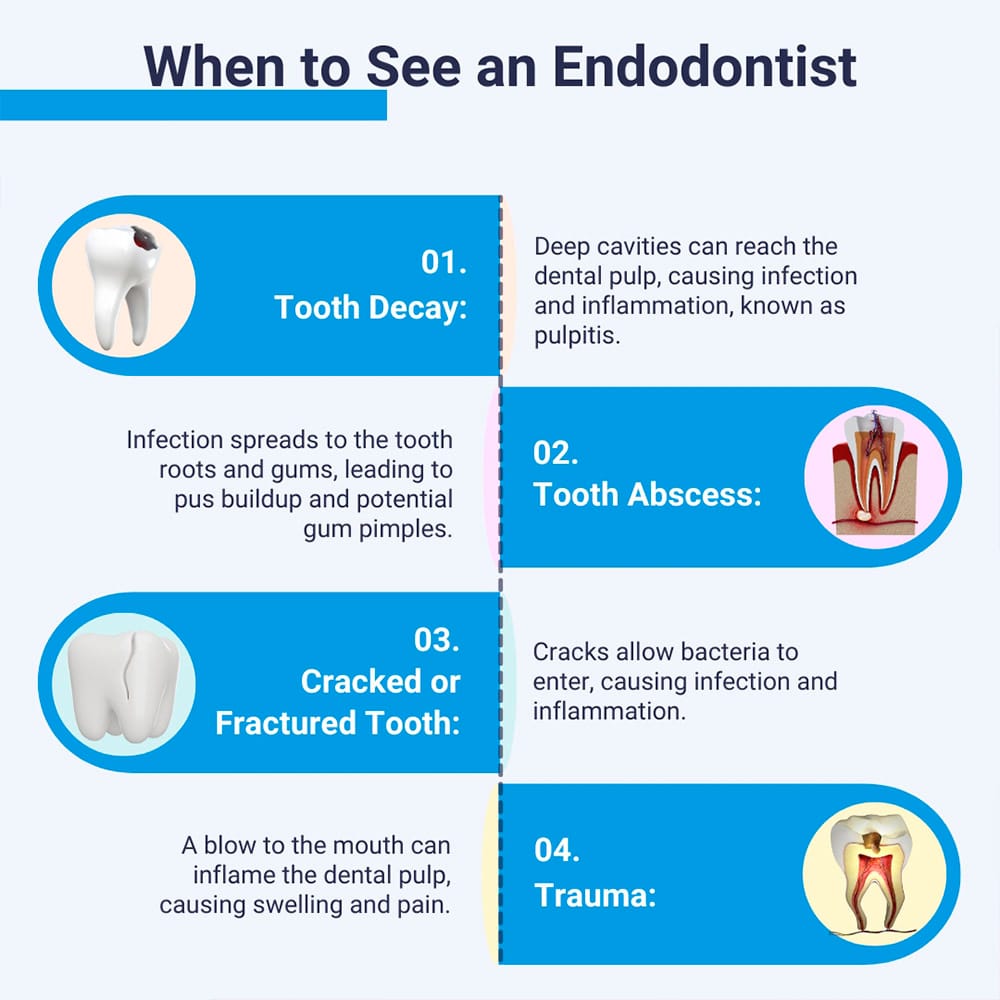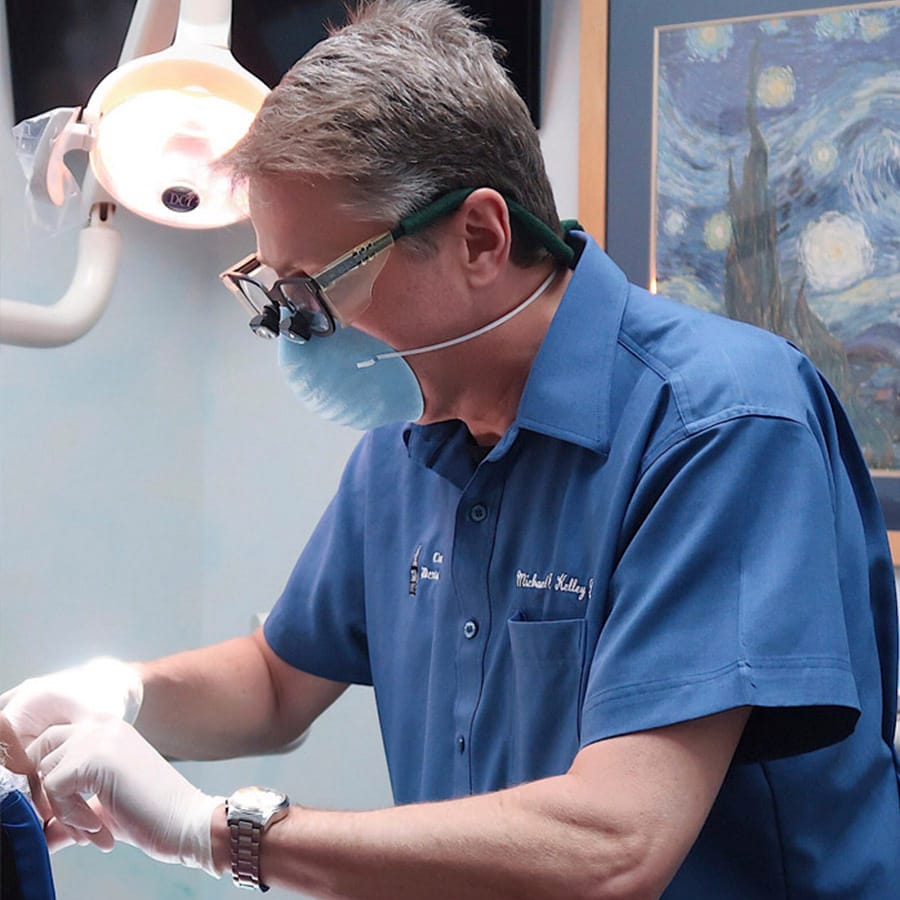What Is Endodontics?
Endodontics treats the innermost part of your tooth, especially problems affecting the tooth pulp. Every tooth has a pulp at its center in the pulp chamber.
The dental pulp is a collection of blood vessels, nerves, and connective tissues. These pulp tissues extend from the tooth’s center into the root canals in your tooth roots. The pulp is necessary when your tooth is growing and developing, but an adult tooth can survive perfectly well without it.
Problems can arise if the dental pulp becomes infected and inflamed. In this case, an endodontist or dental specialist uses techniques to treat the pulp.
When Would I Need Endodontist?
Endodontist may be necessary if you have a problem with the dental pulp for your tooth roots. Potential reasons for seeing an endodontist include:
Tooth Decay
An untreated cavity can become deep enough to reach the dental pulp. Bacteria in dental plaque cause tooth decay, and when these bacteria reach the pulp, they can cause infection and inflammation, a condition called pulpitis. An infected dental pulp can die.
Tooth Abscess
A dental or tooth abscess is a serious condition where the infection has reached deep inside the tooth and spread to the tooth roots and surrounding gum. It can cause a buildup of pus at the tip of the tooth root. The pus may result in a pimple on the gum nearest the affected tooth.
Cracked or Fractured Tooth
A cracked or fractured tooth allows bacteria to penetrate the enamel. Once in the tooth, they can cause infection and inflammation. Even a tiny crack in a tooth can open up when you bite down.
Trauma
If you take a blow to the mouth, it can inflame the dental pulp. An inflamed dental pulp will swell, causing pressure in the pulp chamber and discomfort and pain.

What Are the Most Common Endodontic Procedures?
Common endodontic procedures include:
- Root canal therapy. This procedure removes the damaged and infected dental pulp and tissues in the root canals.
- Apicoectomy. This treatment surgically removes the root tip. It may be used if root canal therapy needs to be repeated.
- Treatments for fractured and cracked teeth.
- Treating dental injuries, such as a partially or completely knocked out tooth.
How Can I Tell If I Need Endodontic Treatment?
Signs that you may have a problem tooth can include:
- Persistent tooth pain or discomfort.
- Tooth sensitivity.
- Infected or swollen gums around a painful tooth.
- A deep cavity that has reached the tooth pulp.
- Reinfection after previous root canal therapy.
Which Technologies Can Be Used in Endodontics?
Clock Tower Dental has the latest technologies required for optimal endodontic care. Our technologies include:
- Digital imaging, including 2-D and 3-D dental X-rays.
- Laser caries detection for accurately diagnosing cavities.
- Advanced materials for root canals and tooth restoration.
- Dental microscope to ensure root canals are cleaned thoroughly.
How Much Will Endodontic Treatment Cost?
The cost depends entirely on the procedure needed and the restorative materials chosen. For example, if you need root canal therapy, you will probably need a dental crown afterward. A dental crown’s cost can vary depending on the materials used to fabricate it. Incorporating at-home orthodontic care options may also help manage costs by reducing the need for frequent in-office visits.
When you visit our dental office, we can assess your tooth, determine which treatment will provide the best outcome, and provide a custom treatment plan.
Will Dental Insurance Cover the Cost of My Endodontic Treatment?
Dental insurance will likely cover at least part of the cost of your treatment as endodontics is often needed to restore damaged and infected teeth and is therefore necessary.

